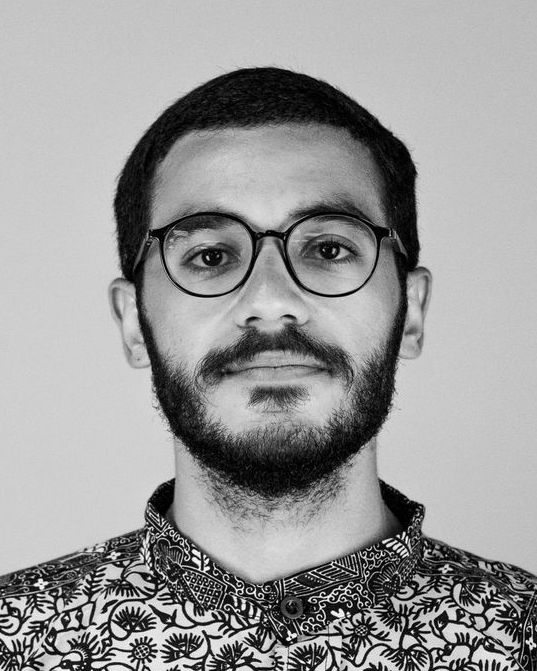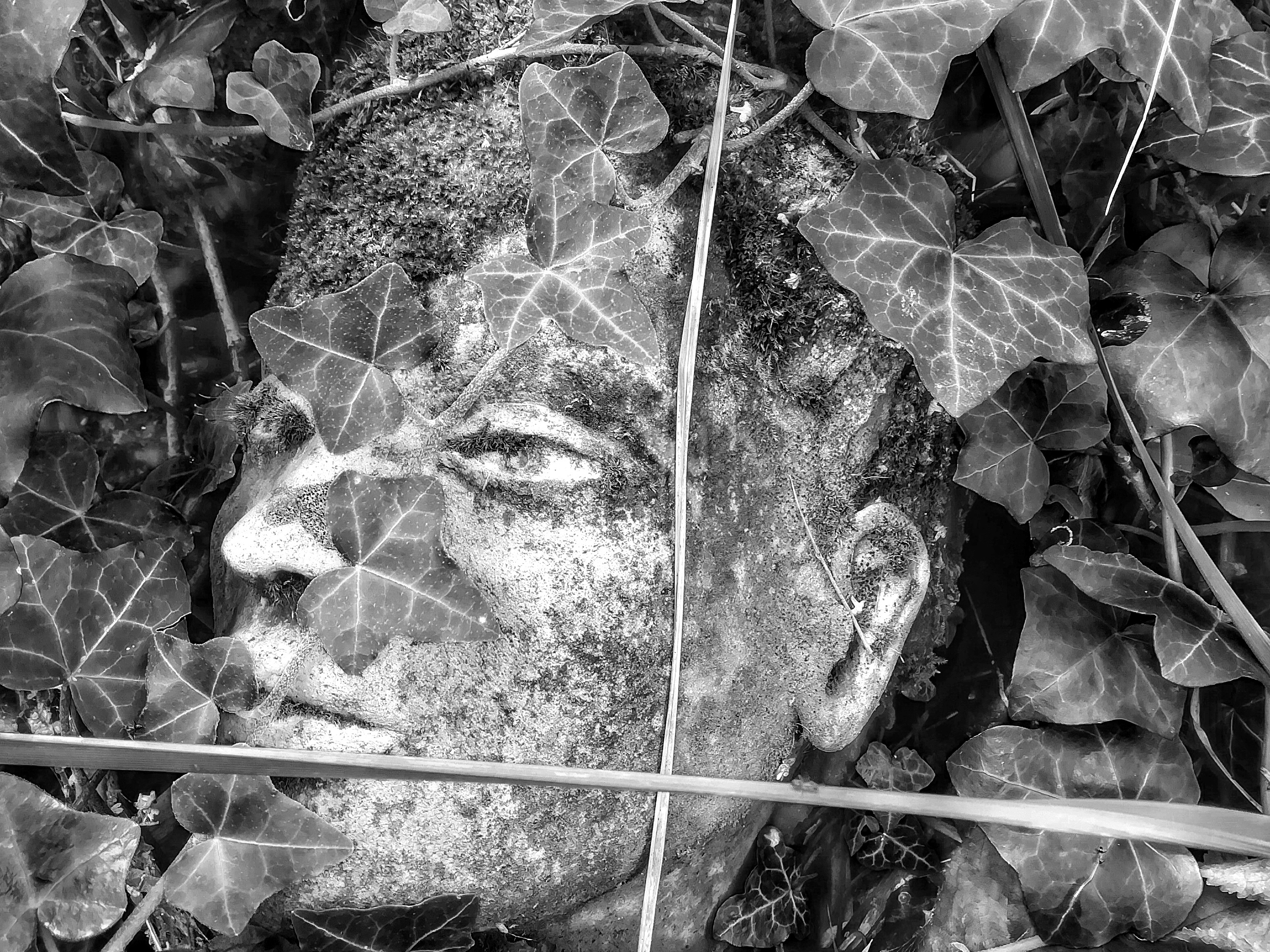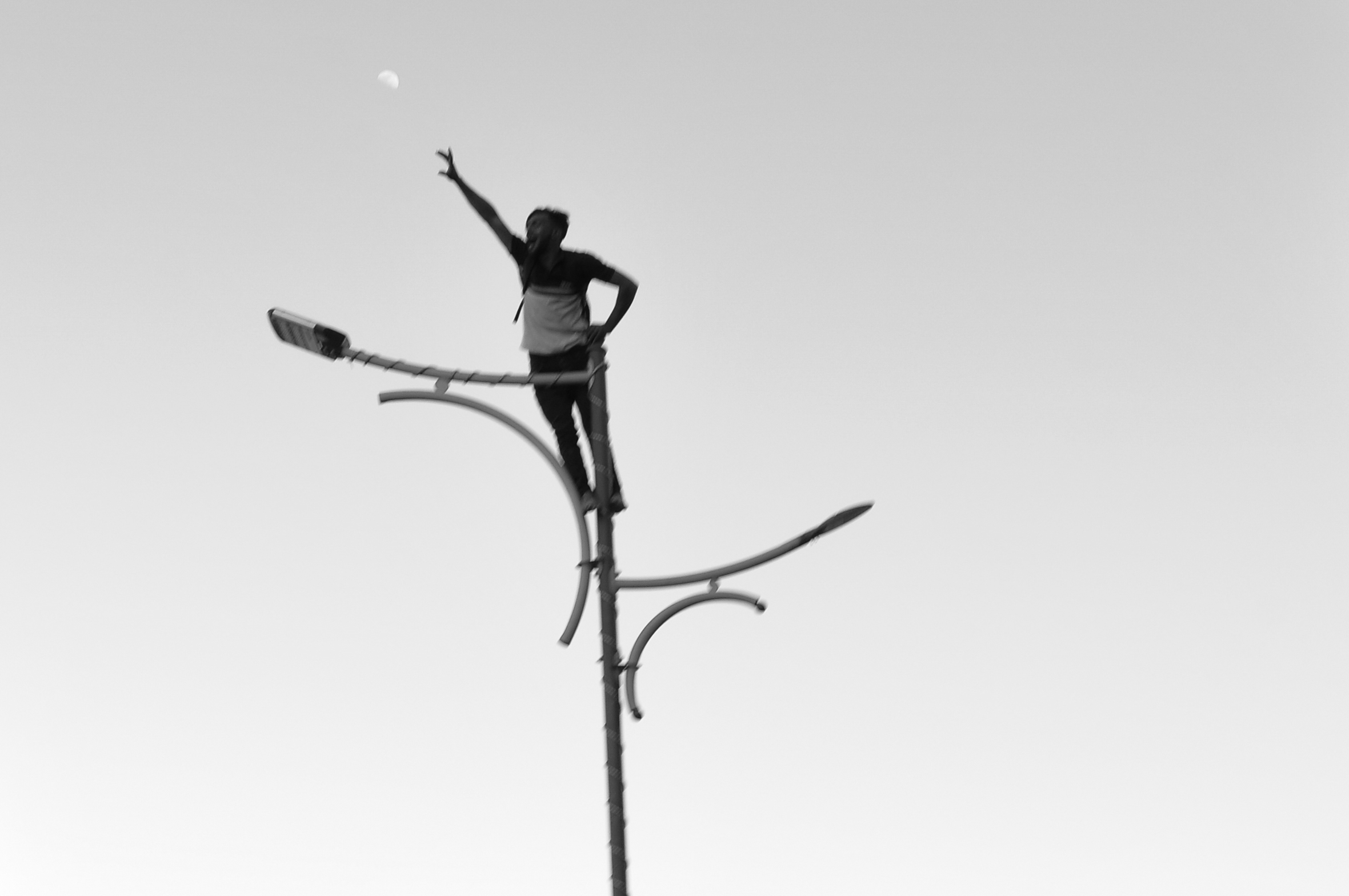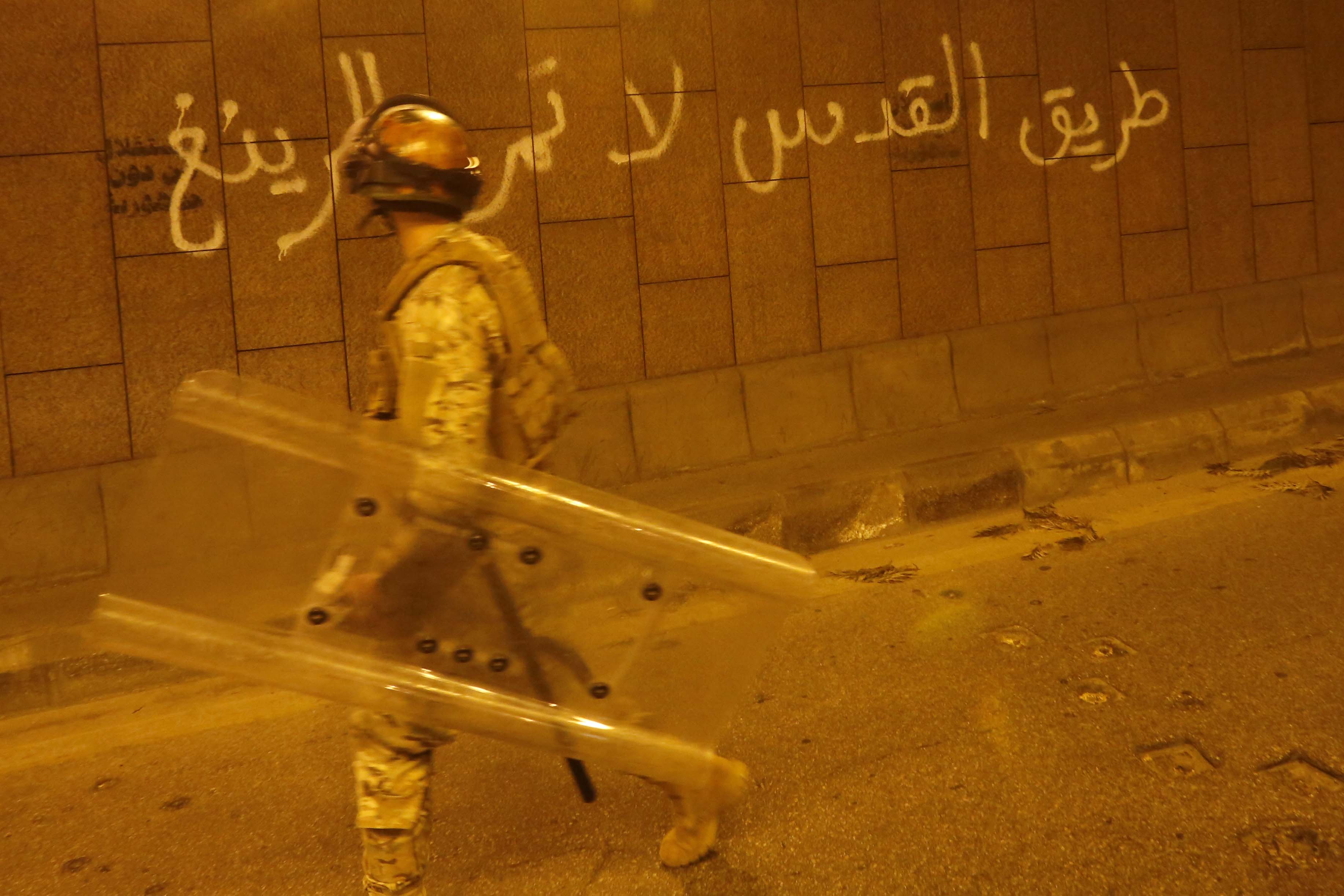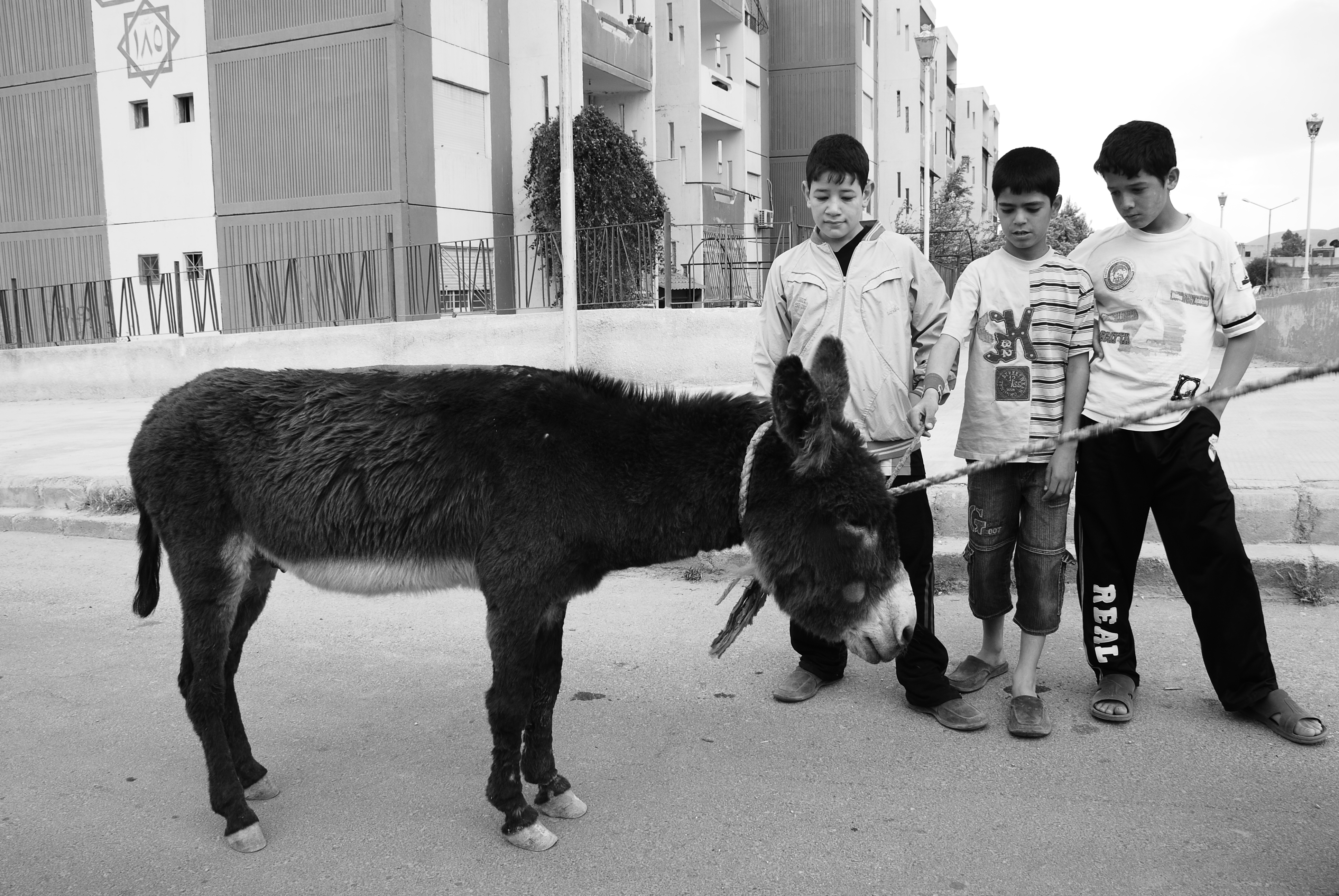This article is part of a series on Arab photography funded by the Friedrich Naumann Foundation for Freedom, with guest editor Muzaffar Salman.
Read this article in its original Arabic here.
A heavy mist covers everything, and the smell of the river interlaces with flowers, breezing coolly through the early morning. The only sounds are the birds shooting upward as soon as they hear footsteps approach.
In a field nearby, Ghazal collects flowers to prepare the bouquet I came here for: basil, cloves, orchids and Damask roses with violets.
After a long search around the fields, I see Ghazal waving me over with my bouquet. Once I arrive, he offers a ride down the Nile on his boat, and I agree without even thinking. I know it will be cheap because it's still early morning. Since the covid outbreak, he’s barely had any visitors from nearby villages, families who used to hire boat rides to relax.
Ghazal is a 35-year-old fisherman. Like other fishermen around, he uses his small rowboat for these Nile trips. He also farms on the side. On the riverbank, timeworn wooden boats assemble, bobbing gently with the waves. Carefully, I follow Ghazal down the rocky slope to his boat as local children and adults swim despite the health risks of the Nile water. Fishermen traverse the area back and forth to check their nets.
In search of the best picture in the world
22 January 2021
What it’s like to be Algerian: Photographic anatomy
23 November 2021
People’s lives in this place have become intertwined with the river, like threads of a well-woven garment. Flooding season began last month, and despite the recent construction of the Renaissance dam much farther upstream in Ethiopia, the little isles here remain surrounded by river water one day when I pay a visit. “The river was a gift from our gracious God and we have been using it ever since,” said Dahey, interrupting the silence while sipping from his tea. He offers some to me. Dahey is a 70-year-old local fisherman, from the city of al-Qanateer.
I can’t hide my curiosity about the source of the water he used in the tea. Dahey eases my nerves, assuring me it wasn’t from the river. “I don’t drink from it anymore since I got kidney problems, but before that I used to drink it my whole life.”
Dahey recounts adventures with his siblings when they were children, as if they happened yesterday. “After the slow regression of the river, we used to collect fish off the ground while they were still alive. They’d leap out of our hands while we fell down in the mud laughing, and we’d get up again to start collecting more. At the end of the day, our family and neighbors used to gather in our neighbor's orchard enjoying the breezy evening while the smell of fried fish mixed with the smell of the citrus trees,” Dahey tells me.
In the afternoon, children from nearby villages assemble around the nearby reservoir to swim in the warm water while others fly kites, enjoying the view of the sun setting bit by bit. Others go on their last boat ride with Dahey, Ghazal and their colleagues, while some of the fishermen draw their worn boats to the shore and flip them upside down to let them dry until tomorrow. Some will spend the night here. The boats are their homes.


